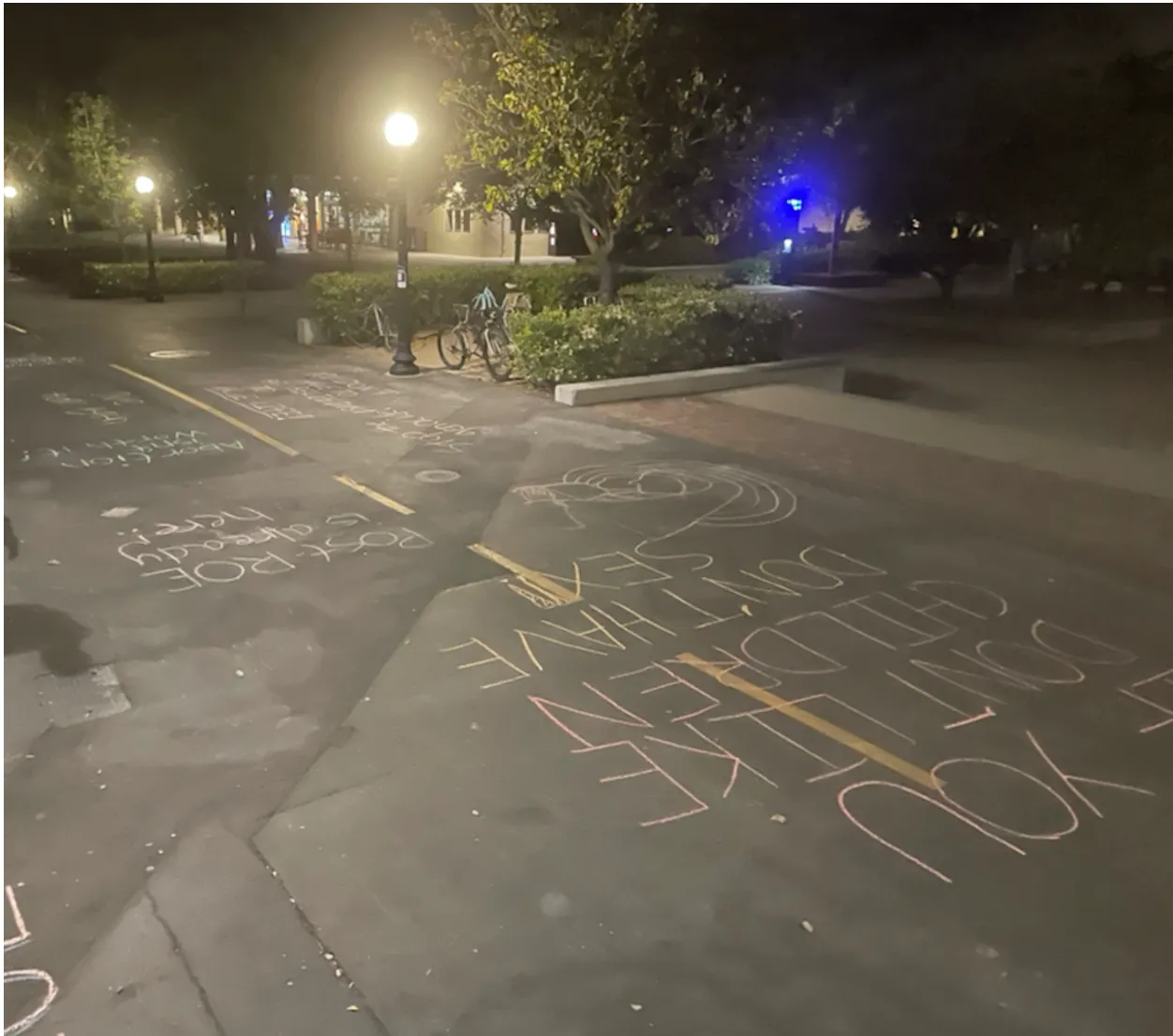Table of Contents
The unprecedented leak of Justice Alito’s draft opinion in Dobbs v. Jackson Women's Health Organization earlier this month revealed that the demise of Roe v. Wade is likely imminent. In the wake of the leak, pro-abortion student groups at Stanford organized rallies and blanketed White Plaza with chalk messages in support of abortion, while pro-life students responded with chalk messages of their own, counterprotests, and prayer. Fizz, an anonymous social media app popular amongst Stanford students, was likewise in uproar — the top post of the week read “abortion is health care” and had 76 comments. After four days, as is typical at Stanford, students collectively moved on to the next pset, paper, or midterm. Despite this, the fervor of the anti-Dobbs protests indicate a fundamental misunderstanding of the proper function of the US Constitutional system.
For 184 years, the issue of abortion was left to state governments to decide. For most of American history, abortion was illegal in every state. Suddenly, when Roe v. Wade was decided in January 1973, the Supreme Court removed the question of abortion from the hands of the people’s elected representatives. Dobbs, which will overrule Roe in its entirety if Alito’s opinion holds, would return abortion to the democratic playing field, affording supporters of each side the opportunity to elect politicians who share their views on the issue and enact policies that reflect them.
By protesting the draft Dobbs opinion, campus activists and Democrats in Washington (many of whom have spent the past two years harping about democracy) are expressing support for nine unelected lawyers removing abortion from the democratic process. Their justification for this view is that abortion should be, as Roe proclaimed, a fundamental right. But no tradition — save the Democrat Party platform — has ever held abortion to be so fundamental. For example, nearly all faith traditions (Christian, Jewish, Hindu, etc;) oppose abortion.
Liberals’ resistance to letting states legislate on abortion — one of the most contentious issues in American politics — shows a flawed, anti-democratic mentality towards governance. The moment that the Supreme Court’s defense of legal abortion nationwide began showing cracks, the Democrat party’s first response was to hold a floor vote in the US Senate on the likely unconstitutional (and comically misnamed) Women’s Health Protection Act — a bill that aims to override nearly every state law that limits abortion.
The questions that abortion introduces, particularly of when human life begins and its value, are hotly contested. Disagreement on the most fundamental aspects of life are why it remains so contested, even fifty years after Roe. Compare it to poverty: everyone agrees that America should work to reduce poverty; the debate there lies in how to do so. But with abortion, disagreement begins on the morality of the practice itself. There is no broad agreement on whether abortion should be legal, and if so, for how long.
Fortunately, we have a system of government designed to resolve this division. In our federalist, constitutional system, power is split across different branches and at different levels. Every citizen is simultaneously under the jurisdiction of different governments (each with its own responsibilities). As a general rule, decisions should be made at the lowest level of government possible where the individual has the most input. In a country of 330 million people with wildly different belief systems and values across different states and regions, the best way to legislate a question as complex as abortion is to heed the words of Thomas Jefferson when he observed, “Government is best which is closest to the people.”
If abortion is left to the states, pro-life and pro-abortion activists can make their case to the people of each state. Some states will choose to ban abortion altogether or place strict limits on the practice, others initially will not. In our system of government, this is a fair playing field to have a fight over abortion. It is unjust for judges and politicians in Washington DC to supercede the will of the people of Louisiana, where over 60% of voters added a pro-life provision to the state Constitution in 2020, or West Virginia, which adopted a similar provision in 2018.
Every January since Roe was decided, millions of pro-life Americans have attended the March for Life in Washington, D.C. to call for the end of abortion. The optimism apparent earlier this year was palpable, but pro-life leaders understand that Dobbs is not the end of the line. With the obstacle of Roe cast to the ash heap of history, it will be vital to persuade people of all political persuasions that abortion is wrong and encourage them to support politicians that share this belief. In states with heavily entrenched liberal majorities, groups such as Democrats for Life will be vital in order to turn abortion from a partisan issue into one where there is broad agreement.








